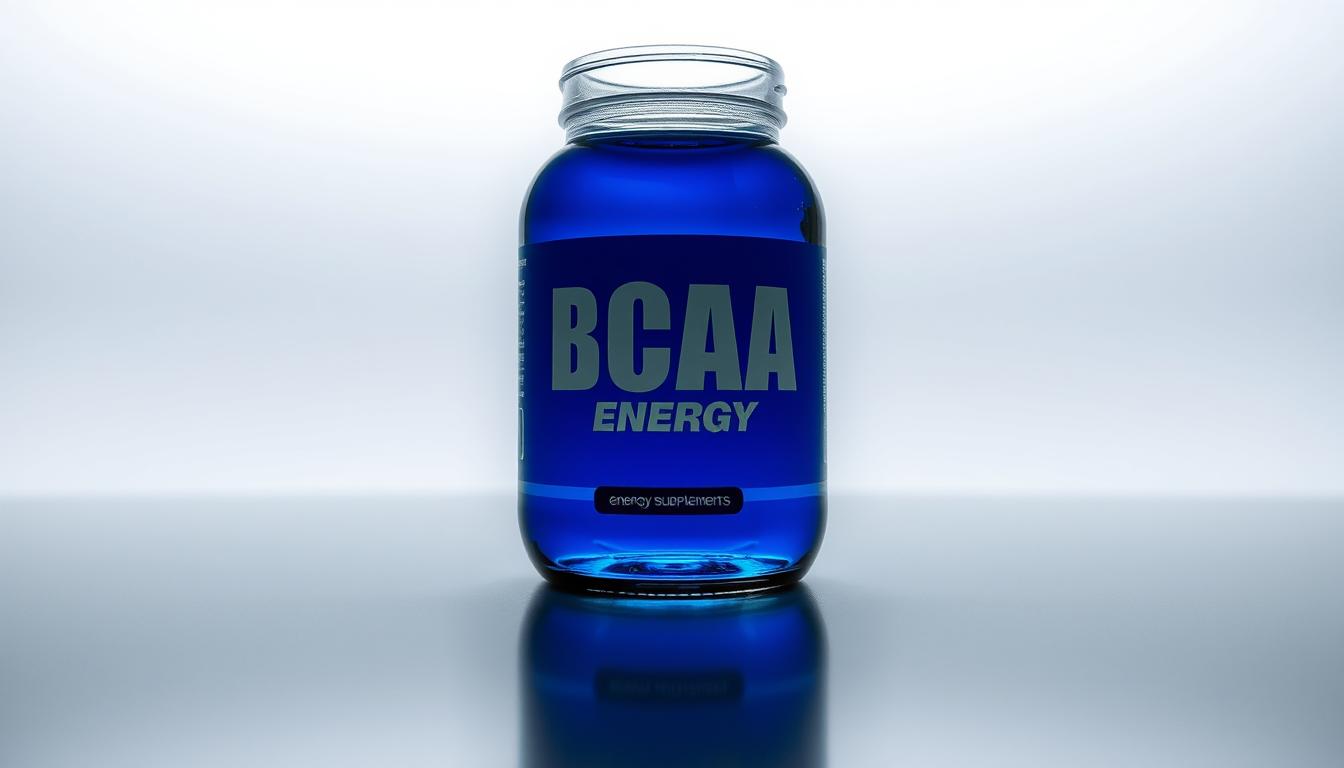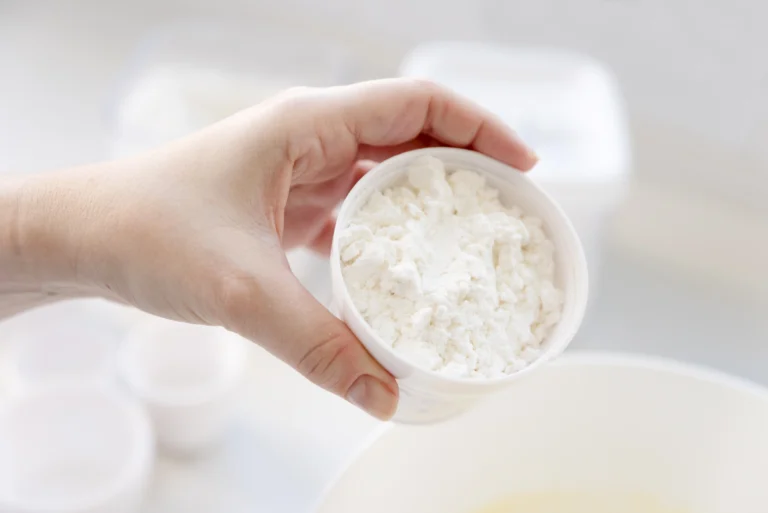BCAA Energy: Benefits and Uses for Performance | Guide
Starting my fitness journey was tough. Muscle fatigue and slow recovery were my biggest hurdles. That’s when I found out about branched-chain amino acids (BCAAs). They changed my workout game.
BCAA energy isn’t just a trend. It’s a key for athletes and fitness lovers to boost performance, lessen muscle soreness, and speed up recovery. It doesn’t matter if you’re a pro athlete or just work out on weekends. Knowing how BCAAs work can change your fitness game.
In this guide, we’ll explore the amazing world of branched-chain amino acids. We’ll see how they can boost your physical performance and help your muscles.
Table of Contents
Key Takeaways
- BCAAs are critical for muscle metabolism and protein synthesis
- Supplements can help reduce muscle fatigue during workouts
- Optimal BCAA intake supports faster muscle recovery
- Available in vegan and non-vegan forms for diverse dietary needs
- Recommended daily intake ranges from 5-10 grams per serving
Understanding BCAAs: Essential Building Blocks for Performance
Amino acid supplements are key for your body’s performance and muscle health. BCAAs, or Branched-Chain Amino Acids, are vital for your physical strength.
Your body needs specific nutrients to work well, and amino acids are essential. So, what are BCAAs? They are three of the nine amino acids your body can’t make on its own.
The Unique Chemical Structure
BCAAs are named for their special chemical structure. These three amino acids are:
- Leucine
- Isoleucine
- Valine
Critical Roles in Body Function
Essential amino acids are crucial for many body functions. So, what do BCAAs do? They mainly help with:
- Muscle protein synthesis
- Energy production
- Muscle repair
- Supporting the immune system
“Essential amino acids are the building blocks that keep your body performing at its peak.” – Nutritional Science Research
Individual BCAA Characteristics
Each BCAA has its own benefits. Leucine is great for building muscle. Isoleucine and valine help with energy and muscle recovery.
Athletes and fitness lovers often use amino acid supplements. Knowing about these amino acids helps improve your performance and recovery.
BCAA Energy: How These Amino Acids Fuel Your Workouts
Your workout fuel is more than just carbs and proteins. Branched-chain amino acids (BCAAs) are key in powering your exercise. They offer unique endurance boosters that support your body’s energy systems.
ATP Production and Energy Systems
BCAAs are powerful workout fuel that directly impact your body’s energy production. These amino acids contribute to ATP generation, helping you sustain intense physical activity. The bcaa benefits extend to multiple metabolic pathways:
- Direct energy source during exercise
- Support mitochondrial energy production
- Reduce muscle glycogen depletion
Glucose Metabolism and Exercise Performance
Your body’s glucose metabolism gets a big boost from BCAAs. Isoleucine, in particular, plays a crucial role in regulating blood sugar levels and enhancing energy utilization during workouts.
| BCAA Amino Acid | Energy Performance Impact |
|---|---|
| Leucine | Activates muscle protein synthesis |
| Isoleucine | Improves glucose uptake and energy regulation |
| Valine | Supports muscle recovery and energy production |
Fatigue Reduction Mechanisms
BCAAs help reduce exercise-induced fatigue. They reduce serotonin production in the brain and spare muscle glycogen. This can extend your workout duration and intensity.
Research indicates BCAA supplementation can improve endurance performance by 10-15%.
Muscle Protection and Growth Benefits
Branched-Chain Amino Acids (BCAAs) are key for muscle health. They help your muscles recover and grow after workouts. This is thanks to their precise support.
Research shows BCAAs have many benefits for muscle growth:
- Prevent muscle breakdown during intense exercise
- Stimulate muscle protein synthesis
- Reduce exercise-induced muscle damage
- Minimize muscle soreness
BCAAs help protect your muscles. Leucine, the strongest BCAA, starts muscle growth. About 45-55% of your body is muscle. Keeping these muscles healthy is vital for your performance.
| BCAA Component | Daily Recommended Intake | Muscle Growth Impact |
|---|---|---|
| Leucine | 0.055 g/kg/day | Primary muscle protein synthesis trigger |
| Isoleucine | 0.042 g/kg/day | Energy metabolism support |
| Valine | 0.047 g/kg/day | Muscle tissue preservation |
Studies show 3g of amino acids with 1.2g of leucine can boost muscle growth. This is as effective as 20g of whey protein. BCAAs are a smart way to help your muscles recover and grow.
Athletic Performance Enhancement with BCAAs
Discovering the power of a pre-workout blend can change your athletic game. Branched-chain amino acids (BCAAs) are key to supporting your body during tough workouts. They help you train better and recover faster.
Athletes in many sports see the benefits of BCAAs for better workouts and recovery. Let’s look at how BCAAs help at different workout stages.
Pre-Workout Benefits
BCAAs make your body ready for hard exercise. They help:
- Less muscle breakdown before exercise
- Less tiredness during exercise
- Better focus and energy
During Exercise Support
BCAAs are key for keeping up performance during workouts. Studies show they can:
- Give quick energy
- Less muscle damage
- Keep exercise intensity up
Post-Exercise Recovery
BCAAs really stand out in recovery after exercise. They offer:
- Quicker muscle repair
- Less muscle soreness
- Fast protein building
*”BCAAs are not just supplements, they’re strategic performance enhancers for athletes.”*
| Exercise Stage | BCAA Benefits |
|---|---|
| Pre-Workout | Energy preparation, mental focus |
| During Exercise | Sustained performance, reduced fatigue |
| Post-Exercise | Muscle recovery, reduced soreness |
Adding BCAAs to your workout routine can unlock new athletic heights and recovery.
Recovery and Muscle Soreness Reduction
BCAA supplements are great for muscle recovery and fixing muscles after workouts. Studies show they help reduce muscle soreness and speed up healing after hard exercise.
For athletes and gym-goers, BCAAs can lessen muscle damage from exercise. Research shows big improvements in recovery, especially with the right BCAA use.
- Reduces muscle soreness by up to 33% within 24-72 hours post-exercise
- Decreases creatine kinase levels, indicating faster muscle repair
- Supports faster recovery of maximal isometric force
Getting the most out of BCAAs for muscle recovery means timing is key. Drinking 20 grams of BCAAs an hour before working out can make a big difference. The best daily amount is 10-30 grams, with the best results at 0.087-0.22 grams per kilogram of body weight.
BCAAs can significantly reduce delayed onset muscle soreness (DOMS), helping you bounce back faster from challenging workouts.
Regular BCAA use boosts your muscle recovery. They target muscle damage from exercise, cutting down on rest time between workouts. This helps improve your sports performance.
Optimal BCAA Dosage and Timing
Exploring bcaa energy and amino acid supplements can be tricky. Knowing the right amount and when to take it is key. It helps boost your fitness and muscle strength.

- Fitness level
- Body weight
- Training intensity
- Specific fitness goals
Recommended Daily Intake
The best BCAA amount varies by person. Generally, it’s between 5 to 20 grams a day. Here’s a simple guide:
- Beginners:
- Women: 3-5 grams per day
- Men: 5-10 grams per day
- Advanced Athletes:
- Women: 12 grams per day
- Men: 15-20 grams per day
Strategic Supplementation Windows
When you take bcaa energy matters a lot. It affects your workout and recovery. Here are the best times:
- 30 minutes before workouts
- During exercise
- Within 30 minutes after workouts
- 2 hours after meals
“The right timing of amino acid supplements can make a substantial difference in muscle protein synthesis and recovery.” – Sports Nutrition Research
Duration of Use
Using BCAAs regularly can help a lot. Most athletes keep using them, adjusting as needed. Stick to a 2:1:1 ratio of leucine, isoleucine, and valine for best results.
Always listen to your body and talk to a healthcare expert. They can help find the best BCAA plan for you.
Natural Sources vs. Supplementation
You have two main ways to get BCAAs: through natural foods or supplements. Knowing the good and bad of each can help you eat better for top performance.
Natural foods are a great way to get BCAAs. Foods high in protein are key for amino acids. Vegans can find BCAAs in:
- Legumes and beans
- Nuts and seeds
- Soy products
- Quinoa
- Whole grains
Supplements are useful when you don’t get enough protein from food. They’re good for those needing lots of protein or with certain diets. Vegans can find plant-based BCAA supplements now.
Studies show supplements give a lot of amino acids but shouldn’t be the only thing you eat. About 12.1% of college athletes use amino acid supplements, showing they’re popular in sports nutrition.
Supplemental amino acids are only necessary if dietary protein intake is insufficient.
Deciding between natural foods and supplements depends on your fitness goals, diet, and needs. Talking to a nutritionist can help you figure out the best way to get BCAAs for you.
BCAA Impact on Immune Function and Overall Health

BCAAs do more than just help muscles. They also boost your immune system. This is key for keeping your body healthy and fighting off sickness.
Studies show BCAAs are good for your immune system. They help make antibodies and immune cells. This means your body can fight off diseases better.
- Support antibody production
- Stimulate immune cell generation
- Reduce inflammation
- Promote faster recovery
Research in Iran found interesting links between BCAAs and health. They looked at 95 people with rheumatoid arthritis. They found BCAAs might affect how the immune system works.
| BCAA Type | Odds Ratio for RA Risk | Significance |
|---|---|---|
| Leucine | 2.40 | P |
| Isoleucine | 2.04 | P |
| Valine | 1.87 | P |
These results need more study. But they show BCAAs might be important for your immune system. What you eat can really affect your health, and BCAAs could be a big help.
Potential Side Effects and Considerations
When looking into amino acid supplements, it’s key to know the possible side effects of BCAA energy products. BCAAs are usually safe, but some people might have bad reactions.
Potential side effects of BCAA supplements include:
- Gastrointestinal discomfort
- Nausea
- Headaches
- Fatigue
Your body’s reaction to BCAA energy supplements can differ. People with health issues or on medications should talk to doctors before starting.
Always listen to your body and watch for any unusual symptoms when trying new amino acid supplements.
Research shows that too much BCAA might affect your metabolic health. Studies link high BCAA intake to risks like:
- Reduced insulin sensitivity
- Potential glucose metabolism disruptions
- Increased risk of metabolic complications
To stay safe, start with the recommended doses. Also, watch how your body reacts when adding BCAA energy supplements to your workout routine.
Conclusion
Branched-chain amino acids (BCAAs) are a key part of your workout fuel. They include leucine, isoleucine, and valine. These amino acids help with muscle recovery and improve performance.
Studies show they play a big role in athletic success. They help prevent muscle damage and boost brain function during hard workouts.
Knowing about BCAA energy can change how you work out. Adding BCAAs to your diet or supplements can help grow muscles and reduce tiredness. Aim for 5-10 grams before, during, or after exercise.
Even though research is promising, scientists are still learning more. It’s important for athletes and fitness lovers to think carefully about using BCAAs. Always talk to a healthcare expert before starting.
The study of BCAAs is ongoing, and they are still a valuable part of good nutrition and training. How you react to BCAAs can differ, so it’s important to find what works best for you. Keep learning and experimenting to get the most out of BCAAs.








One Comment
Comments are closed.